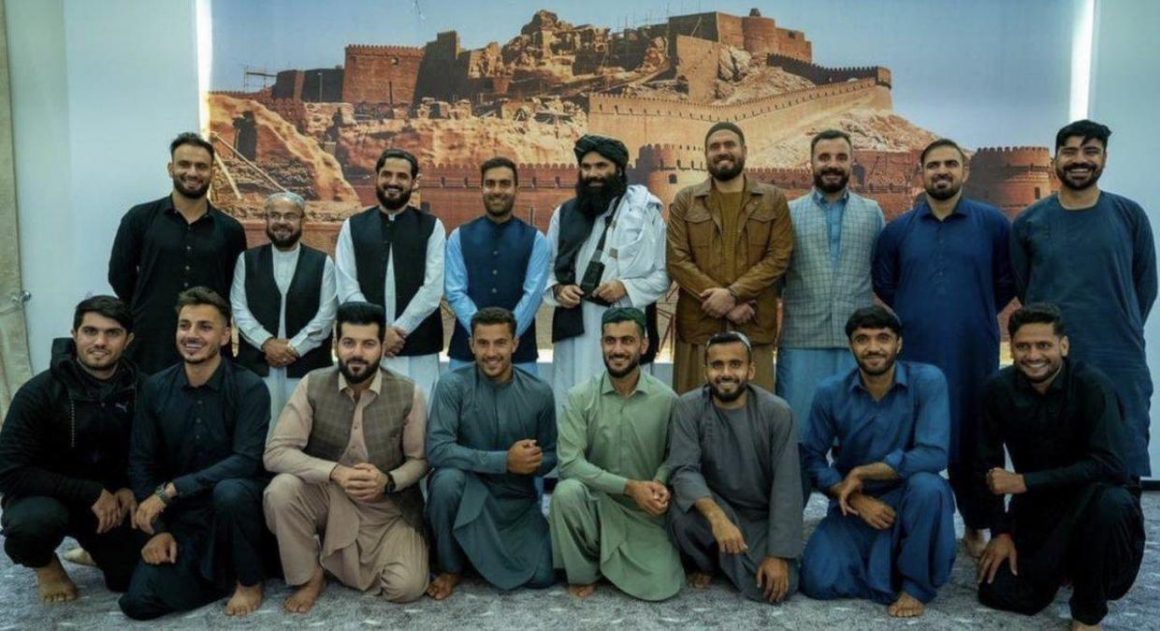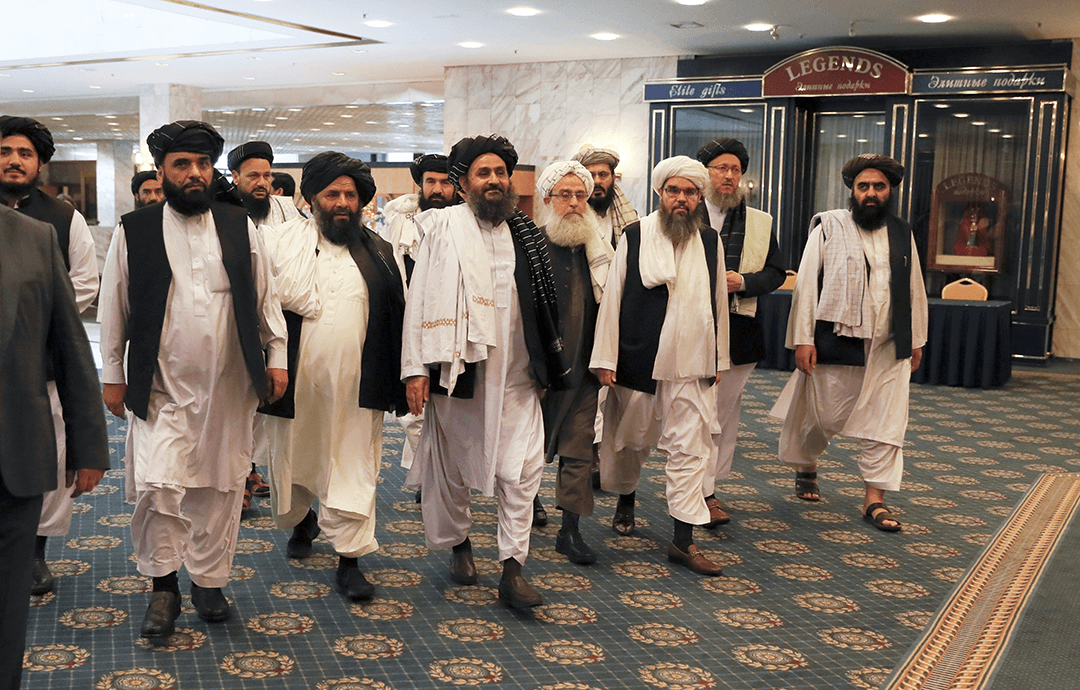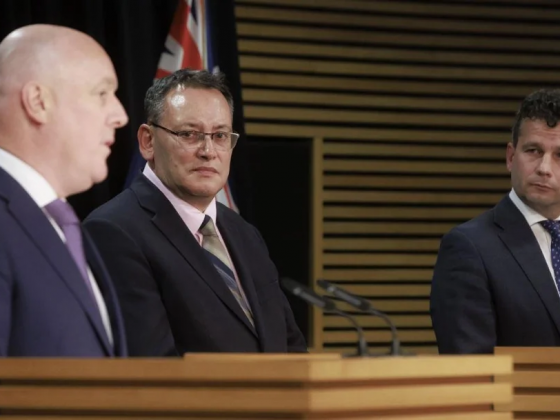The Black Caps are to play a test match against Afghanistan between September 9-13, in India. So far, the biggest news story about this fixture has been the exclusion of Rashid Khan, Afghanistan’s superstar and captain, from the 20 players in the Afghan squad.
There is a bigger story though. One that involves (a) the oppression of women and girls in every dimension of life in Afghanistan, (b) the non-adherence of the International Cricket Council (ICC) to its own rules, (c) the difference in the public stance taken on this issue of Afghan women’s cricket by New Zealand compared to Australia, and (d) the basic question – what fresh horrors does the Taliban government have to inflict on women and girls before New Zealand will decide not to play cricket with Afghanistan’s national team?
Australia has drawn a clear line in the sand. In March, Cricket Australia (CA) cancelled a scheduled three match T20 series against Afghanistan. This will not happen,Cricket Australia explained, until there are “improved conditions for women and girls in the country” under Taliban rule:
“Following consultation with the Australian Government, CA previously postponed the ODI series against Afghanistan scheduled for March 2023 after a marked deterioration in human rights for women and girls in Afghanistan,” CA said.”Over the past twelve months CA has continued to consult with the Australian Government on the situation in Afghanistan.
“The government’s advice is that conditions for women and girls in Afghanistan are getting worse. For this reason, we have maintained our previous position and will postpone the bilateral series against Afghanistan.” CA continues its strong commitment to supporting participation by women and girls in cricket around the world and will continue to actively engage the International Cricket Council and work closely with the Afghanistan Cricket Board to determine what actions could be taken to support the resumption of bilateral matches in the future.“We again thank the Australian Government for its support.”
Note the active involvement of the Australian government, and the gratitude shown by Cricket Australia for that government advice and support. So… has Cricket New Zealand (CNZ) sought similar advice from the New Zealand government on this matter – and if not, why not? If so, what advice did CNZ get back from Sports Minister Chris Bishop, and from MFAT?
Moreover… in going forward with this one-off test, what weight, if any, did CNZ give to our apparent public undermining of Australia’s principled attempt to pressure the ICC – and the Taliban – to help improve the cricketing fortunes of Afghanistan’s women and girls, and establish a national women’s cricket team able to represent that country on the world stage?
These are not idle questions. In addition to the human rights dimension, they go to the heart of how cricket is managed by the ICC, internationally:
The International Cricket Council (ICC) requires its 12 full members – Afghanistan became one in 2017 – to have a national women’s team. This led to 25 female cricketers being awarded contracts in November 2020.
Less than a year later though, the Taliban returned to power before the Afghan women’s team had played a competitive match:
The players and their families faced immediate intimidation – with many going home and burning and hiding their equipment [the terrified players reportedly burned bats, pads, scorebooks etc] for fear of being discovered. They fled over the border to Pakistan and 22 of the 25 were given emergency Australian visas (with two others going to Canada and another to the UK).
Almost all the 22 Afghan women’s cricketers that went to Australia settled in Melbourne, where they have faced the usual struggles experienced by refugees in learning English, and finding jobs and affordable housing. In 2022, as the Guardian report says, they wrote to the ICC to seek support and the diversion of some funding for themselves as a national team in exile. This was in line with the ICC mandatory condition that all of the 12 full ICC member countries must develop men’s and women’s national teams, as a condition of sharing in the ICC’s annual disbursement of the funds generated by cricket, worldwide. Nothing has happened.
This year, the women resumed their lobbying of the ICC. Reportedly, they did so with the backroom support of Australia and New Zealand, but to no avail, so far. The ICC disbursement last year to the Afghanistan Cricket Board (ACB) amounted to $US17 million – ostensibly to promote men’s and women’s cricket. If anything however, the Taliban’s oppression of women and girls has only intensified in 2024, and all of the ICC funds are going solely into promoting the men’s game.
The women cricketers in exile want the ICC to recognise a “refugee” women’s cricket team, and funnel some of that ICC money into supporting what is, in effect, a vibrant part of the Afghan diaspora. To date, the ICC’s public response has been that it deals only with national cricket bodies. i.e. with the ACB. End of story as far as the ICC is concerned it seems, so far.
Ironically, the International Olympic Committee has shown leadership, and a way around the impasse. In Paris, the IOC recognised six athletes from Afghanistan – three male, three female – and enabled them to march under the pre-Taliban flag. True to form, the Taliban acknowledged only the three male athletes as being representative. The IOC, for all its faults, has shown the ICC a way forward, by creating a precedent for recognising a refugee team in exile.
Again, and in principle, does Cricket New Zealand think that the ICC should recognise an Afghan women’s “refugee” cricket team in exile? Especially given the abject failure of the Afghanistan Cricket Board to abide by the ICC’s rules that require the ACB to use its ICC millions to promote both the men’s and the women’s versions of the game? Or, like the ICC, does CNZ just expect full members to pay lip service to that requirement?
The Men’s team
Before going any further, there’s an elephant in the room. Everyone loves the plucky underdog status of the Afghan men’s cricket team. Against the odds, Afghanistan made the T20 World Cup semi-finals this year. In effect, the Afghan men’s cricket team is virtually the only positive story about Afghanistan these days, on the world stage.
As such, the team members enjoy privileges not available to ordinary citizens. The star players readily move in and out of the country. Rashid Khan – who was one of eleven children and formerly a refugee living in the Pakistan city of Peshawar – has a $US 1.8 million contract with Gujurat Titans in the Indian Premier League (IPL) and has bought homes in Dubai and Sharjah. Less happily, the Afghan men’s cricket team has also been complicit in the Taliban’s use of “sportswashing” as a cover for its human rights abuses. Regularly, the team poses for photographs with Taliban leaders, and – in response to the Australian boycott – Rashid Khan went on X and decried the intrusion of politics into sport.
In the photo below for instance, the bearded, black turbaned gentleman in the back row (centre) is Sirajuddin Haqqani, the acting Minister of the Interior under the Taliban regime, and the leader of the notorious Haqqani network. As CBS News noted earlier this year, “The FBI has offered $10 million to anyone who can provide information that leads to his arrest.”

The India Factor
In a similar vein, Suhail Shaheen, head of the Taliban’s Political Office in Qatar has thanked India directly for its continuous help in “building the capacity of the Afghan cricket team.” Arguably, India is the key to this whole affair. It not only plays a dominant role within the ICC, but – more importantly – India has a strong diplomatic desire to counteract Pakistan’s decades-long influence with the Taliban. To that end, India has – via the Board of Control for Cricket in India – been pouring money, expert coaching and other resources into raising the skills of the Afghan men’s cricket team.
Meanwhile here in this country… the Luxon government has repeatedly signalled that it dearly and desperately wants to score a trade deal with India. Any kind of trade deal, even if India demands that dairy be excluded from it. That being so, for us to follow Australia’s lead and boycott a test match on human rights grounds with Afghanistan, India’s cricketing protégé, would be a diplomatic own-goal, and a setback to our attempts to woo New Delhi into that precious trade deal. (Australia already has its own trade deal with India in the bag.)
India really has poured out all the stops to win influence with Kabul. The September 9 test will be played at the Greater Noida venue in India, which India has all but gifted to the Afghan cricket team, as its new playing and training base. India’s BCCI has also put a million dollars towards the construction of a stadium in Kandahar. Current and former India cricket stars like Manoj Prabhakar, Lalchand Rajput and Ajay Jadeja have all done coaching stints with the Afghan men’s team. To be fair, Indian involvement in Afghanistan did precede the return of the Taliban in mid 2021, but it has sharply increased since, in lockstep with a marked shift in India’s foreign policy stance towards the Taliban:
Suddenly, India was no longer seen as a friend by many Afghans, especially Afghan women. India abruptly halted all contact and communication with former Afghan officials, leaving many seeking refuge in India without support. The Indian government stopped issuing visas for Afghans and even cancelled visas for Afghan students who had returned to Afghanistan for breaks and were subsequently trapped after the Taliban takeover.
Subsequently, Afghans were surprised to see Indian diplomats warming up to Taliban representatives in Doha and eventually returning to Kabul to reopen their embassy…. Afghans understand that India is more focused on counterbalancing Pakistan and China than genuinely assisting Afghanistan…
Within the ICC, India plays a dominant role. Indian businessman Jay Shah has just been elected unopposed to chair the ICC. The Indian Premier League is also the most lucrative, most popular global showcase for cricket, and is also the most important laboratory for developing new talent. Besides Rashid Khan, other Afghan players such as Naveen Ul Haq, Fazalhaq Farooqi, Mohammad Nabi, Rahmanullah Gurbaz, Noor Ahmad and Azmatullah Omarzai have all benefited from their regular exposure in the IPL.
Little wonder then, that it has been such an uphill struggle within the ICC to achieve an outcome – support for Afghan women’s cricket! – that is so completely at odds with India’s foreign policy stance towards the Taliban.
Finally of course, there will be the sporting diehards who will still claim that sport and politics don’t mix and that hey, the September 9 test between the Black Caps and Afghanistan is just a game, mate. Maybe it is a game, but it really isn’t cricket.
Footnote One: New Zealand is not the only country that’s been undermining support for Afghan women’s cricket. In February, Ireland took part in a test match with Afghanistan followed by an ODI series. Shortly after its one-off test with New Zealand, the Afghan men’s team will play a three match ODI series with South Africa – a country which, you might have thought, would know a thing or two about how sporting boycotts can help to bring about social change.
Footnote Two: Such as it is, NZ Cricket’s rationale for proceeding with the September 9 test can be found here. It takes you back to the eve of the Springbok tour in 1981, to find stuff like this still being said:
“The consensus view was that a boycott in isolation would change nothing in Afghanistan,” said New Zealand Cricket spokesman Richard Boock. “It would be more constructive to keep dialogue and participation channels open, while continuing to advocate strongly for change.”
Footnote Three: The desire not to ruffle feathers in New Delhi and to do nothing likely to jeopardise Luxon’s fervent hopes of a trade deal with India may sound like a conspiracy theory. Oddly though, there has been quite a deafening silence this year from Foreign Minister Winston Peters with respect to the Taliban’s escalating human rights abuses. For the record the 2024 innovations have included the resumption of flogging and the subjection of women to death by stoning. Last week also saw the codification in law of edicts that (among other things)include the requirement for women to cover their faces at all times in public places. Lest we forget the reality facing Afghan women and girls:
Taliban abuses deepen daily, violating the rights of Afghan women and girls to study, work, seek health care, escape violence, and even just walk down the street. Many Afghan women look to the UN to make things right – to hold the Taliban accountable for their crimes, for making Afghanistan a suffocating prison for women and girls – but have been disappointed by ineffective UN responses.
Diplomatic outrage here, as elsewhere in the developed world, has been muted.



